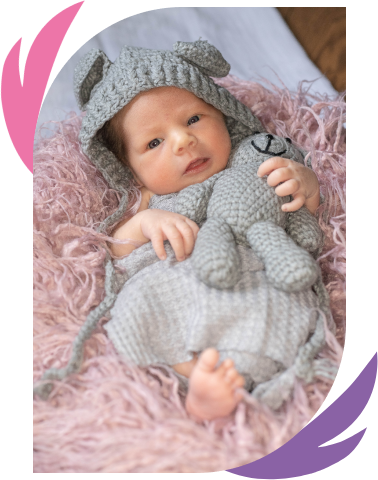
Egg donation is one of the most life-changing, selfless decisions a woman can ever make. As an egg donor, you will be helping other people realize their dreams of becoming parents while being compensated. You can use the compensation to pursue your own biggest dreams.
However, if you are a young woman considering egg donation, there are many things you need to be aware of about the process. In this article, we have put together a list of things every aspiring donor needs to know before beginning the egg donation journey.
1. Not all women can donate eggs
Not to burst your bubble, but only a small percentage of women who express interest in egg donation will be eligible to donate eggs. There are a set of health requirements that every prospective donor needs to meet before they can be allowed to complete an egg donation cycle. These criteria vary from one place to the other, but most fertility clinics and agencies require that the egg donor:
- Be between the ages of 21 to 31
- Have a BMI within the range of 18 to 29
- Be free of any medical or sexually transmitted diseases
- Have regular menstrual periods
- Be a non-smoker or drug user
- Have no history of a genetic disorder in her family
So, you will want to do your research and make sure that you qualify before starting the egg donation process.
2. There are several ways to donate your eggs
There are three main routes you can take when trying to donate eggs – a fertility clinic, an agency, or a “directed” egg donation. In every state you will find many fertility clinics where you can apply for egg donation.
The second option would be applying in an agency or egg bank. Egg banks devote their efforts in finding egg donors to help people who want to have children. You can research online, apply to donate a check if you are qualified.
Finally, direct egg donation is when you are donating eggs to someone that you know, e.g., a family member or close friend, to help them bear children. It is not advised to receive a large payout from the recipient when completing this type of donation.
3. Egg donor compensation varies
Although money should not be your main reason for wanting to donate eggs, it is definitely one of the things you will want to consider. Egg donor compensation varies based on the woman’s location, level of experience, and where she chooses to donate eggs.
You can expect to receive between $8,000 and $15,000 per donation cycle and even more if you have some exceptional qualities. Note that the agency or fertility clinic will take care of all the egg donation-related expenses, like tests, medical screening, accommodation and travel fees, so you donate at absolutely no cost to you.
4. You will need to undergo a thorough screening process to donate
Many people would be relying on your donated eggs to have a baby. This is probably after several years of hopelessness and infertility. So, the fertility clinic or agency will want to make sure that you are of sound health and mind and if your eggs have a higher chance of resulting in a pregnancy.
To do this, you will complete an extensive medical and psychological screening to find out if you are medically and emotionally fit to donate eggs. This may include blood work, genetic testing, physical examinations, and an ultrasound, depending on the fertility clinic or agency you are working with.
5. It is recommended not to donate more than six times
As an egg donor, you should not complete more than six egg donation cycles. Why can you only donate eggs 6 times? For your own health. While egg donation is a relatively safe procedure, it involves the use of hormone injections, which can increase your chances of developing ovarian hyperstimulation syndrome (OHSS). Although OHSS usually has mild symptoms, it can also be fatal. So, it is advisable to mitigate the risk by limiting your egg donations to only six times.
6. Egg donation can take a few weeks to complete
If you are looking to donate eggs, you should be ready to commit a few weeks to the process. Although the actual egg retrieval procedure only takes about 20 minutes, you will have to undergo a thorough screening process, which can last up to six weeks. The fertility clinic or agency will need to review your personal and family health history. They also need to perform medical and mental evaluations to make sure you are a good candidate for egg donation.
Additionally, if you’re on a fresh eggs cycle, you will need to take contraceptives for several weeks to synchronize your cycle with the recipient’s. Then, both for fresh and frozen egg donation cycles, you will be administered hormonal injections for a few days before you are scheduled for egg retrieval.
Generally, you can expect your egg donation cycle to take between two and three months from beginning to end, including the application process, medical screening and egg retrieval.
7. You will probably need to be matched with an intended parent before you can donate eggs
Egg donation is not like blood or sperm donation, where you can just walk to a clinic, do the process, and leave the clinic to do the matching. Most egg recipients prefer to meet, discuss, and match up with their donors before starting the egg donation cycle.
However, if you have less time to spare and you prefer an anonymous egg donation process, you can also donate directly to egg banks without waiting to be matched with an intended parent. This will allow you to donate on your own schedule and complete the process as quickly as possible.
8. Donating your eggs does not impact your future fertility
Research shows that egg donation has no effect on a woman’s ability to have children. Women are born with all the eggs (oocytes) they are ever going to have in their lives. Although the female body develops many eggs during each ovulation cycle, only one of them becomes mature and is eventually released.
The immature ones would die off and be reabsorbed into the body. During an egg donation cycle, the donor takes medication to help her ovaries to produce and mature many eggs, which are then collected. So, basically, the eggs that are removed during a retrieval procedure are those that would never have been released for reproduction.
9. What is donating eggs like in terms of privacy?
As an egg donor, you have the option to reveal your identity to the recipient (known donation) or keep your identifying information private (anonymous donation). If you decide to become an anonymous donor, you and the intended parents are never going to meet or communicate directly with each other.
One of the advantages of anonymous egg donation is that it allows the donors to donate without any strings attached. It also enables the would-be parents to proceed with their fertility treatment without worrying about any possible emotional complications, legal action, or a change in their relationship with the egg donor.
10. Egg donation is highly regulated in the United States
The US FDA considers egg donation as reproductive tissue donation. So, there are strict rules and regulations in place to protect everyone involved in the process. This also includes you as the egg donor, the recipient parents, and the baby conceived with the donated eggs.
When you choose to donate eggs, you are giving other people a chance to achieve pregnancy and have their own babies. You will also be compensated for your time and effort during the egg donation journey. The procedure is also safe and fast and it has no impact on your future fertility, but before you consider egg donation, you need to make sure that you are physically and mentally ready for the process and that you are doing it for the right reasons












